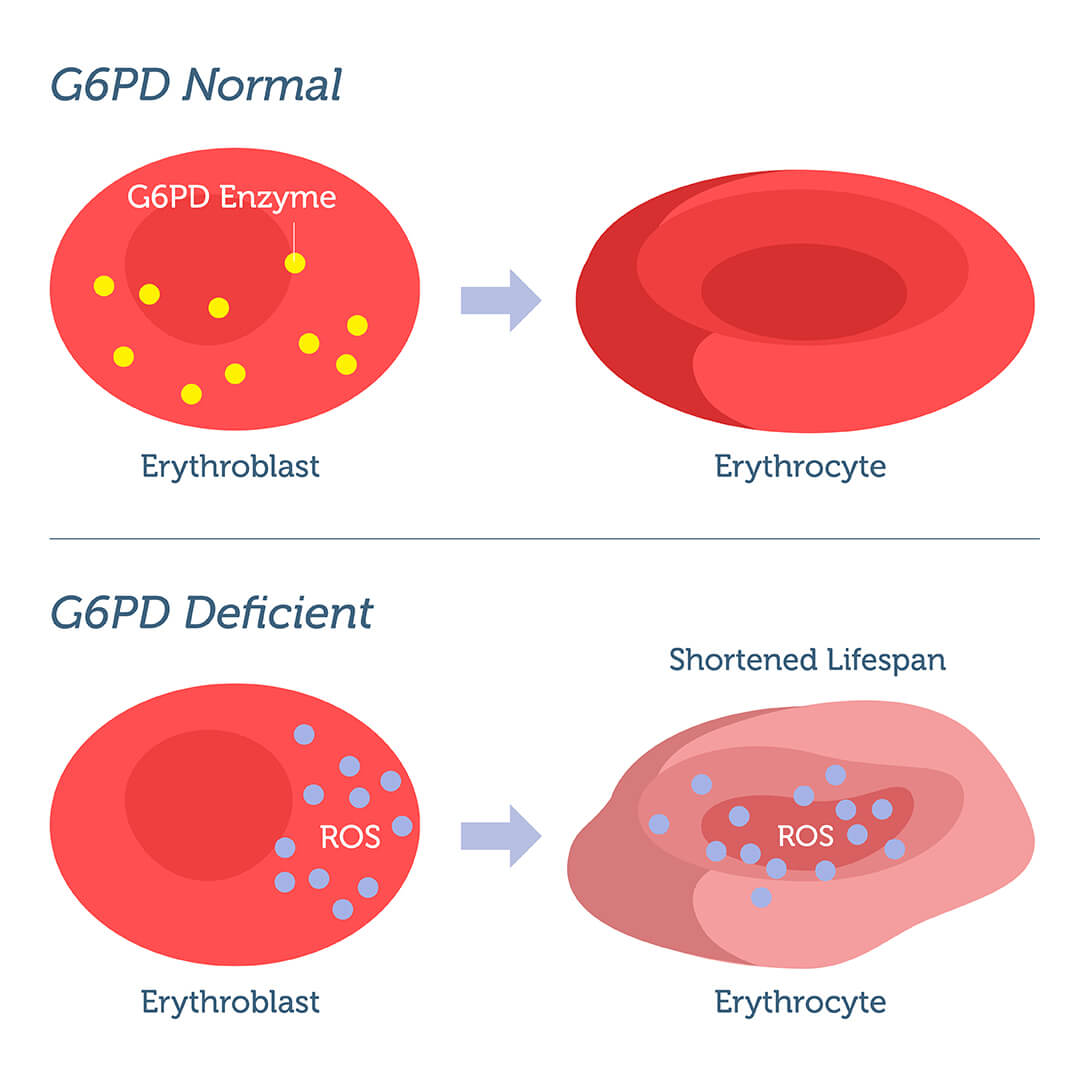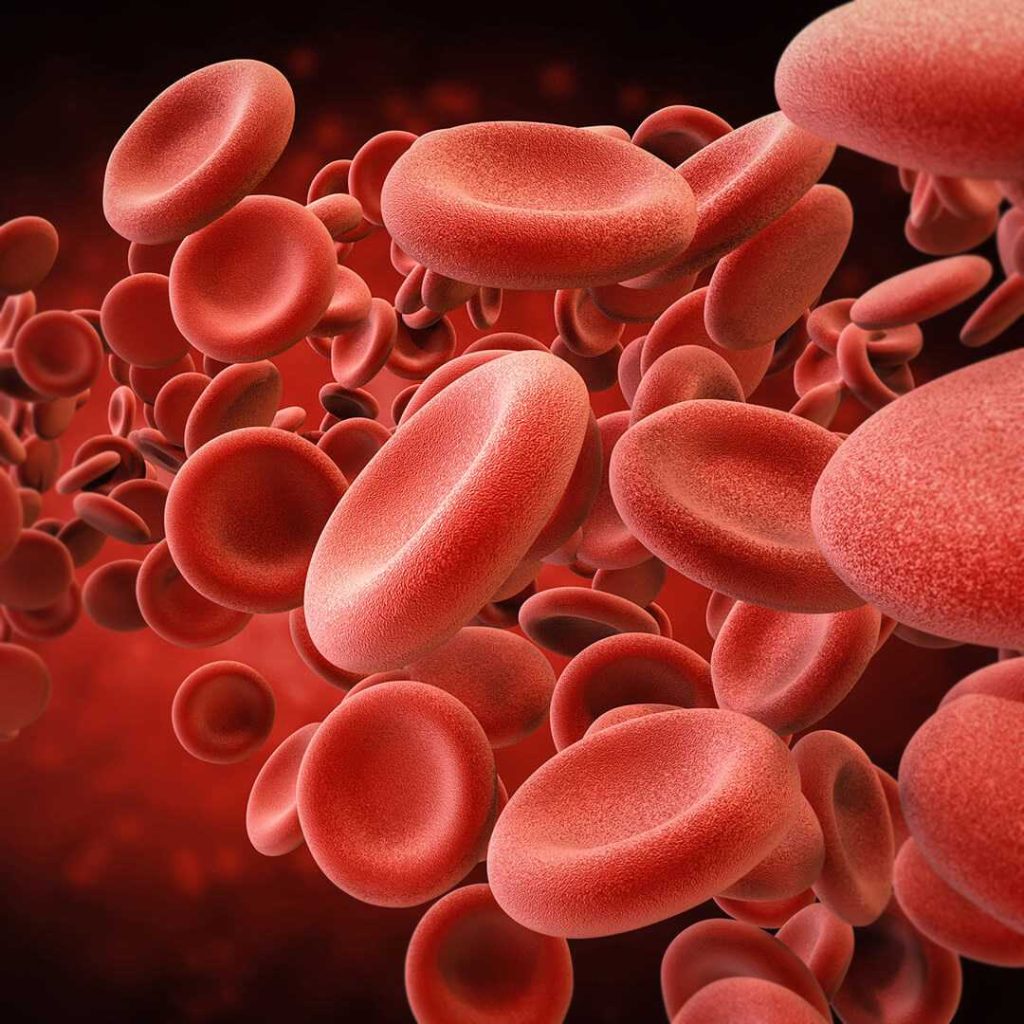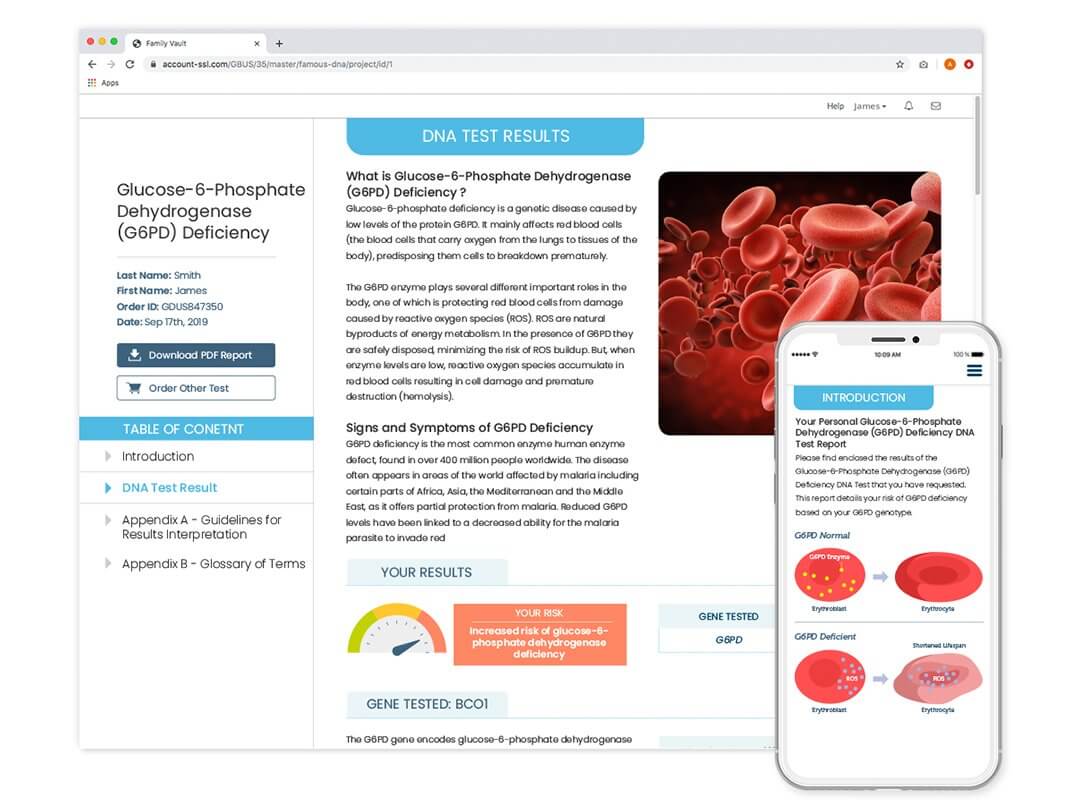Glucose-6-Phosphate Dehydrogenase Deficiency
Are you at risk of glucose-6-phosphate dehydrogenase (G6PD) deficiency? Find out with this DNA Test.
- Detects one variant of the G6PD gene, which results in G6PD deficiency in people of African descent
- Early diagnosis is key to managing symptoms associated with the disease
- 100% private and confidential online results
Already have DNA markers? Sign in and upload your data to view results.
Need to take the DNA Test? Order our easy-to-use swab kit.
Detailed Description
Glucose-6-phosphate deficiency is a genetic disease caused by low levels of the protein G6PD. It mainly affects red blood cells (the blood cells that carry oxygen from the lungs to tissues of the body), predisposing them cells to breakdown prematurely.
The G6PD enzyme plays several different important roles in the body, one of which is protecting red blood cells from damage caused by reactive oxygen species (ROS). ROS are natural byproducts of energy metabolism.
In the presence of G6PD they are safely disposed, minimizing the risk of ROS buildup. But, when enzyme levels are low, reactive oxygen species accumulate in red blood cells resulting in cell damage and premature destruction (hemolysis).
Take this test to find out whether you are at risk. Early identification is key to appropriately managing the symptoms of the disease.

The Genetics
G6PD deficiency is caused by genetic variation in the G6PD gene. More than 400 genetic variants have been identified, all of which either reduce enzyme levels or will alter the structure of the enzyme leaving the red blood cells unprotected from oxidative damage.

Variant Tested
This test looks at one genetic variant, rs1050828, which results in G6PD deficiency in people of African descent.
The G6PD gene is located on the X-chromosome, one of the two sex chromosomes. As such
- Men with only 1 copy of the X chromosome are at high risk of being affected
- Women must inherit 2 variant copies to be affected
- Heterozygous carriers (women who carry 1 copy of the defective variant) can pass down the defective variant to their children
- There is a 50% chance that a son of a carrier will develop the disease
Understanding your genetic risk for G6PD deficiency can encourage early monitoring, as avoiding triggers is key to managing symptoms associated with anemia.
Signs & Symptoms of G6PD Deficiency
- Rapid heart rate
- Shortness of breath
- Urine that is dark or yellow-orange
- Fever
- Fatigue
- Dizziness
- Paleness
- Jaundice, or yellowing of the skin and whites of the eyes
How It Works
Step 1: Sign up for a free Genebase account.
Step 2: Upload your DNA markers to Genebase.
Step 3: Login to your account to access your results when they are ready.


